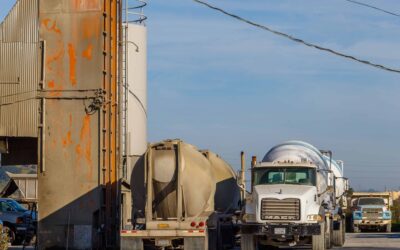Construction projects produce a wide range of waste materials. And with infrastructure and development projects part of political and economic growth plans around the world, the amount of construction waste is likely to increase. Construction waste management software can help waste organisations to manage this area professionally and more cost-effectively.
Construction waste comes in all shapes and sizes, including:
- Solid waste such a concrete, brick, stones and soil
- Hazardous waste such as asbestos, adhesives and paints
- Non-hazardous waste such as glass, plastics, wood and metal
These all need to be dealt with in different ways. Construction companies are responsible for ensuring that all waste is removed, disposed of or recycled. This responsibility is monitored by required reporting, licensing and compliance with legislation, and so construction companies are looking for competent third-party contractors who are able to prove that they are handling those waste products properly.
One of the best ways to meet these demands is to invest in software that has been designed specifically for the industry. Software that has been designed by people who understand the nature, requirements and challenges of the waste management industry can support waste organisations to deliver the standard of service that the construction sector requires.
What does construction waste management software look like?
Waste management companies often add individual software packages to their businesses as they grow. They may have a package to manage invoicing and finance, with a separate system dealing with route planning and using another platform to manage customer relationships. Meanwhile, other functions may still be using spreadsheets or even paper forms.
For ambitious, growing organisations, this lack of a joined-up approach to business software can actually harm the business. With no integrated way to approach all the business functions needed to run a successful waste management business, things can get overlooked and reporting could contain errors.
A high-quality software platform offers these organisations a way to control all their business functions. It is integrated across the organisation, so that managers can have complete visibility at all times. It collects, stores and organises data for easy reporting both to meet your own requirements and to support your customers to meet their various regulations.
It also helps you to streamline processes, reduce costs and deliver a much more effective service – whether you are handling construction waste, general waste or household recycling. By investing in this type of system, you are giving your business a commercial advantage and a competitive edge.
For more information, visit our detailed guide for everything you need to know about waste management software. To speak with the team about how software for construction waste management can drive better profitability and productivity, click below.






